Medical expert of the article
New publications
Preparations
Sleeping pills
Last reviewed: 03.07.2025

All iLive content is medically reviewed or fact checked to ensure as much factual accuracy as possible.
We have strict sourcing guidelines and only link to reputable media sites, academic research institutions and, whenever possible, medically peer reviewed studies. Note that the numbers in parentheses ([1], [2], etc.) are clickable links to these studies.
If you feel that any of our content is inaccurate, out-of-date, or otherwise questionable, please select it and press Ctrl + Enter.
To get rid of constant or periodic drowsiness, you need to determine the cause and eliminate it, not the symptoms.
Sleep disorders occur in a number of pathologies, in particular, of a neuropsychiatric nature:
- Kleine-Levin syndrome;
- narcolepsy;
- sleep apnea;
- endocrine problems;
- diseases of the cardiovascular system.
Indications for use
The main indication for the use of sleeping pills is an unhealthy desire to sleep during the day, a state of pathological drowsiness.
Sleep medications should not be taken at your own discretion. Only a doctor can competently consider all the pros and cons, prevent complications or replace the drug with a more suitable one in time.
Read also: Sleepiness pills
Pharmacodynamics and pharmacokinetics
Sleep pills are psychostimulants, they activate skeletal muscle tone and psychomotor activity. Pharmacodynamics is reduced to the presence of adaptogenic properties. This group of drugs stimulates the receptors of the central nervous system, the activity of the digestive organs, and the cardiovascular system.
For example, pantocrine consists of chemical compounds that resemble the body's microelements, so it is easily absorbed into tissues, with minimal negative impact.
Amino acids normalize carbohydrate-protein metabolism.
Phospholipid structures restore ion exchange, restore the structure of cell biomembranes. Normalize enzymatic reactions.
The pharmacokinetics of psychostimulant drugs are characterized by fairly rapid absorption of the drugs. The maximum concentration of active substances in the blood serum is achieved from 1 hour 50 minutes to two and a half hours.
Such a parameter as the half-life period has a wider range and in different drugs is from 4-5 to 15 hours. Active metabolites are excreted mainly in urine.
The effect of sleeping pills lasts for about two days from the moment of taking them.
Sleeping pill names
The following sleeping pills are particularly popular due to their effectiveness and availability:
- longdaising;
- pantocrine;
- iodafinil;
- Ritalin;
- caffeine;
- donepezil;
- phenotropil;
- ephedrine.
In addition to sleeping pills, pharmacists offer many herbal preparations (such as lemongrass tincture). Most often, the invigorating properties of plants and natural products are used in tablet form.
The most famous are Chinese magnolia vine, ginseng root, purple echinacea, eleutherococcus, rose rhodiola, and rose hips.
Modafinil
Modafinil is a relatively new drug developed in the USA.
It is able to stimulate brain activity, thus not affecting the rhythm of night sleep. The drug eliminates lethargy, improves endurance, improves mental abilities and memory. Modafinil is recommended for:
- multiple sclerosis;
- depressive manifestations;
- Alzheimer's disease;
- age-related changes in memory;
- circadian rhythm disorders;
- after anesthesia.
As trials have shown, modafinil is not addictive or has serious side effects, does not provoke anger, aggression, tremors, or other negative mental symptoms. It is safer than other sleep pills.
Modafinil does not cause euphoria, has almost no effect on blood pressure, and reduces the excitability of the peripheral nervous system.
These sleeping pills are used only under medical supervision.
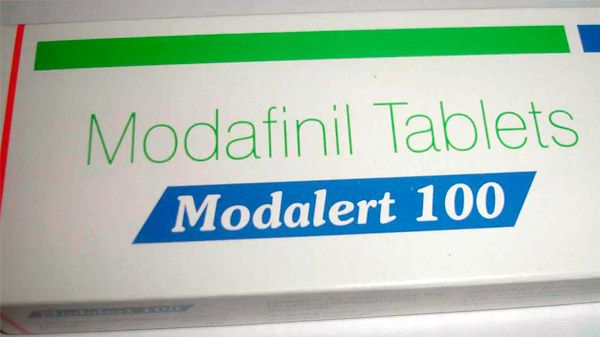
Longdayzin
The name Longdeisin can be translated as "day extender". An effective drug that affects human biorhythms, it can extend a person's wakefulness period up to 5 hours. In this way, the drug eliminates drowsiness exactly when wakefulness and activity are required.
Longdeysin sleep pills are especially useful:
- when working different shifts, including at night
- when frequently traveling around the world, moving in different time zones
- in pathologies accompanied by drowsiness.

Pantocrin
Pantocrine is quite well known in medicine. The basis of the drug is an extract from young, unossified antlers (antlers) of spotted deer, red deer and maral. The drug:
- has a tonic effect on the central nervous system, heart and blood vessels, digestive organs
- stimulates tone and performance
- relieves drowsiness and fatigue.
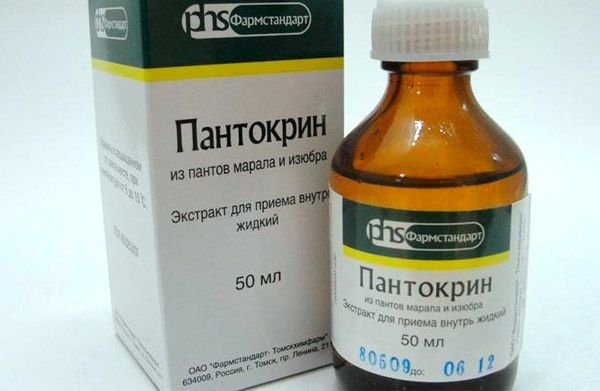
Pharmaceutical forms – sleeping pills, drops.
Ritalin
Ritalin is a pharmacological drug with a stimulating effect. The active substance is methylphenidate. It is also produced under other names, including meridil, centedrine. It belongs to a group of narcotic substances such as cocaine and amphetamines. The advantage of the synthetic stimulant is that it has a milder effect than amphetamines and, according to available information, has fewer side effects.
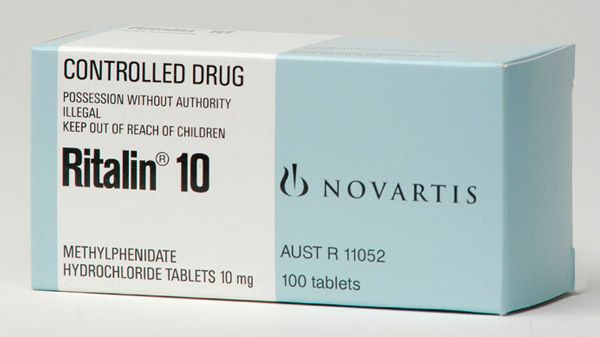
However, there are even more objections to these sleeping pills than pros.
The mechanism of action of this drug is "not fully understood", as the manufacturer warns. It is known that the tablets often cause aggression, panic states, hallucinations, and large doses are fraught with convulsions and even death.
Abroad, this drug is prescribed by psychiatrists for the treatment of attention deficit hyperactivity disorder in children.
Donepezil
Donepezil is a piperidine derivative. It is used in the complex therapy of Alzheimer's disease. Analogues based on it:
- Aricept;
- donepazil;
- clear;
- alzidon;
- alzepil, etc.
These sleeping pills inhibit the enzyme cholinesterase in the brain, blocking the breakdown of acetylcholine, which transmits impulses to the central nervous system. The active ingredient is donepezil hydrochloride. Slows down the development of symptoms of the disease, maintains daytime activity. Reduces inappropriate behavior, apathetic manifestations, meaningless actions, even hallucinations. Therapy continues as long as it is effective.
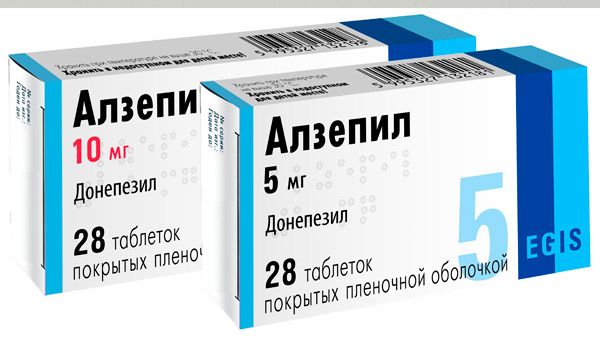
The drug has the following side effects: nausea and vomiting, diarrhea, insomnia.
Pharmacies sell this group of drugs only with prescriptions. After taking the drug, you cannot drive or perform work that requires special care or precision.
 [ 3 ]
[ 3 ]
Caffeine
Caffeine in tablets is a natural stimulant (has psychostimulating, analeptic and cardiotonic effects) of industrial production, which is sold in all pharmacies. The invigorating effect is based on the blocking of adenosine receptors. As a result of inhibition of phosphodiesterase activity, cAMP and cGMP accumulate. Thus, it stabilizes the transmission of nerve impulses through the synapses of neurons of the central nervous system and peripheral nervous system. Sleep tablets with caffeine (trade name sodium caffeine benzoate) activate nervous and mental activity, reduce the feeling of fatigue, the desire to sleep almost instantly.
The drug contains pure caffeine, so its effectiveness exceeds the effect of, for example, a cup of coffee. The tablets, unlike the drink, act more gently and last longer, do not cause a sharp increase in blood pressure and accelerated heartbeat.
The drug contains potato starch and calcium stearate, which improves the dissolution of caffeine and its absorption. It works for five to seven hours at a dosage of 50 - 100 mg. The recommended dosage is two to three tablets per day.
It is forbidden to exceed the recommended doses, take before bedtime.
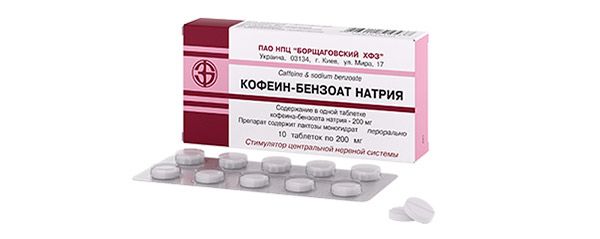
Sodium caffeine benzoate is also used in the treatment of certain diseases: complex therapy of migraine, nocturnal enuresis in children, sleep apnea. There are also contraindications, such as: arterial hypertension, atherosclerosis, glaucoma, old age, therefore, a specialist prescribes it for therapeutic purposes.
 [ 4 ]
[ 4 ]
Phenotropil
Phenotropil belongs to the pyrrolidone group. It is not a drug, but a drug partially possessing the properties of amphetamines, included in the list of doping agents. It has psychostimulant, nootropic, antiamnestic, anticonvulsant, antiasthenic, adaptogenic and immunostimulating effects.
If we talk about the short-term effect, then after 20-60 minutes it causes not just cheerfulness, but a feeling of composure and determination, a person's concentration increases, he wants to do "everything at once". For a particularly busy working day, it is permissible to drink the drug in the morning with a portion of coffee.
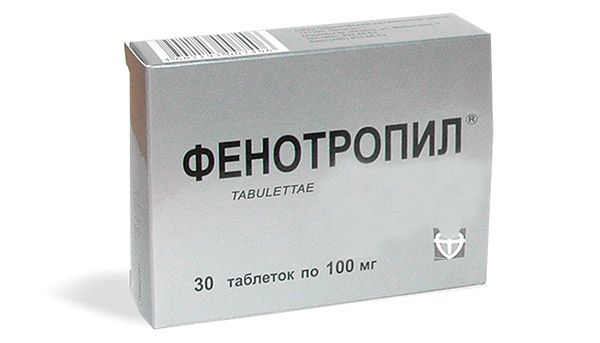
Phenotropil is used not only as a sleeping pill; it is recommended for obesity as a remedy against increased appetite. In a sports diet, it is used with caffeine or similar energy drinks.
The effectiveness of phenotropil depends on the time of use. Long-term use causes addiction, and when used for more than 3 weeks - even dangerous due to exhaustion.
Ephedrine
Ephedrine is a natural alkaloid found in various species of plants of the Ephedra family, growing in the mountains of Central Asia and Western Siberia. The main component is ephedrine hydrochloride, a strong stimulant of adrenoreceptors (beta and alpha). In some properties it is similar to adrenaline: it constricts blood vessels, dilates the bronchi and pupils, increases blood pressure and blood glucose levels, and inhibits intestinal peristalsis.
It has a strong stimulating effect on the central nervous system. A number of ready-made medicines are produced, which include ephedrine (theophedrine, bronholitin, solutan, etc.).
Ephedrine as a sleeping pill is sold by prescription. After 15-30 minutes of taking it, a slight tremor appears, the heart beats faster, and nervous excitement occurs. These symptoms quickly disappear.
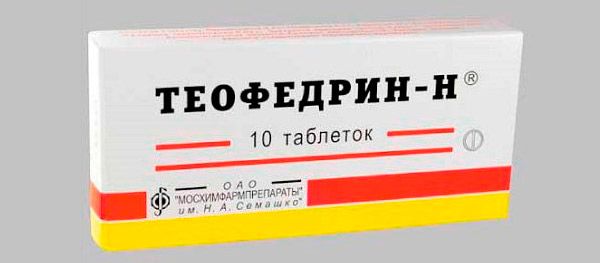
It is forbidden to use tablets containing ephedrine for a long time! It is also forbidden to use it for weight loss purposes – this is a real threat to health and even life.
In some countries, including Russia and Ukraine, ephedrine is banned and listed as a narcotic substance.
 [ 5 ], [ 6 ], [ 7 ], [ 8 ], [ 9 ], [ 10 ], [ 11 ], [ 12 ]
[ 5 ], [ 6 ], [ 7 ], [ 8 ], [ 9 ], [ 10 ], [ 11 ], [ 12 ]
Sleeping pills for drivers
What to take to stay awake? Excellent health and adequate rest before the trip are the main conditions for safe driving. They cannot be replaced by invigorating drinks or pharmaceutical drugs. Experienced drivers know: the most effective way to stay awake on the road is to stop the car and take a nap for 20 minutes to half an hour.
But if you need to quickly, literally on the go, overcome falling asleep, you can count on sleep pills for drivers. Here is a list of suitable stimulants:
- Doppelherz;
- Eleutherococcus;
- phenotropil.
But you can't abuse these drugs: take them in exceptional cases, on the preliminary advice of a doctor or pharmacist. And remember that constant lack of sleep can undermine the health of both a driver and a person of another profession who works "to the point of exhaustion" for a long time.
Method of administration and dosage of sleeping pills
The method of application and dosage of sleeping pills must be determined by a doctor. They depend on the purpose of application and the characteristics of the body. A standard sleeping pill works for 5-8 hours. Usually, two pills are prescribed, with a repeat after the same amount of time.
Most sleeping pills are prescription drugs. The exception is caffeine. You should also read the package insert carefully to avoid unwanted side effects.
Pharmacies offer medications that relieve drowsiness, also in the form of drops, tinctures, extracts, and injections.
Using Sleeping Pills During Pregnancy
Using sleeping pills during pregnancy is definitely not advisable. During lactation, too. After all, the easy penetration of active ingredients into various tissues of the mother's body leads to the fact that the child, along with the milk, will receive a dose of not just unnecessary, but harmful drugs for him.
The only exception is caffeine in sleeping pills, and then only in critical cases, when the benefits greatly outweigh the risks. This is decided by the attending physician, as well as the method and doses (possibly reduced) to take the medicine.
It is advisable for a woman who has given birth not to breastfeed her child while taking psychostimulant drugs.
Contraindications for use
There are also contraindications to the use of sleeping pills. They are associated with acute and chronic diseases, with the presence of alarming symptoms in the anamnesis, namely, with:
- increased blood clotting;
- chronic hypertension;
- acute inflammation of the kidneys (nephritis);
- chronic heart disease and chronic heart failure;
- diarrhea;
- malignant tumors;
- individual intolerance or allergy to individual components;
- severe stage of atherosclerosis.
It is not recommended to prescribe sleeping pills to children under 10 years of age; special caution is required in case of pregnancy and breastfeeding.
The same attention is required by elderly patients suffering from glaucoma, those prone to nervous seizures, and epilepsy.
Side effects
Sleeping pills can have side effects of varying severity. These include:
- increased heart rate, palpitations, arrhythmia;
- increased blood pressure;
- psychomotor agitation;
- dizziness, tinnitus, fainting;
- headache and migraine attack;
- tremors and convulsions;
- gastrointestinal disorders (nausea, vomiting, diarrhea);
- allergic reactions (skin itching, hyperemia, rash);
- hyperhidrosis;
- decreased tolerance to the drug (addiction);
- paradoxical reactions of the body (drowsiness, fatigue).
Overdose
Overdose of sleeping pills occurs due to uncontrolled use, self-medication, and an illiterate approach to the therapy process. This is indicated by characteristic symptoms:
- allergic reactions
- headache
- diarrhea
- psychomotor agitation.
Overdose symptoms are eliminated primarily by discontinuing the drug. Sometimes symptomatic therapy is required.
Interactions with other drugs
It is not advisable to use psychostimulants together with drugs that contain calcium salts, as well as drugs that increase blood clotting (anticoagulants).
Sleep pills, as biostimulants, enhance the effects of nootropic drugs.
Concurrent administration of drugs to stimulate the activity of the small and large intestines is not recommended.
Alcohol and sleeping pills are incompatible substances.
Professional athletes, coaches and sports physicians should be aware that some of the drugs mentioned may be detected in blood or urine during doping tests.
A competent approach to the issue of interaction will prevent complications and side effects in the treatment of drowsiness.
Storage conditions and shelf life
Storage conditions for sleeping pills and other pharmaceutical forms of this group are typical for pharmaceutical products. In particular, medications should be stored:
- in a dry, ventilated area;
- no direct sunlight;
- at positive temperatures not exceeding 25 degrees;
- in a place protected from children.
The temperature range fluctuates between 3 and 35 degrees Celsius. Other requirements, if any, are necessarily noted in the instructions, which should be paid attention to when buying medicines.
Pharmacies must strictly adhere to special storage conditions for strong drugs (the so-called list A, list B, etc.).
Pharmaceutical companies must indicate the manufacturing time and expiration date of each product on the packaging. It is dangerous to use the medicine after this period has expired.
Sleeping pills, liquid forms of psychostimulant drugs, if stored properly, usually retain the indicated properties for 24 - 36 months.
Attention!
To simplify the perception of information, this instruction for use of the drug "Sleeping pills" translated and presented in a special form on the basis of the official instructions for medical use of the drug. Before use read the annotation that came directly to medicines.
Description provided for informational purposes and is not a guide to self-healing. The need for this drug, the purpose of the treatment regimen, methods and dose of the drug is determined solely by the attending physician. Self-medication is dangerous for your health.

